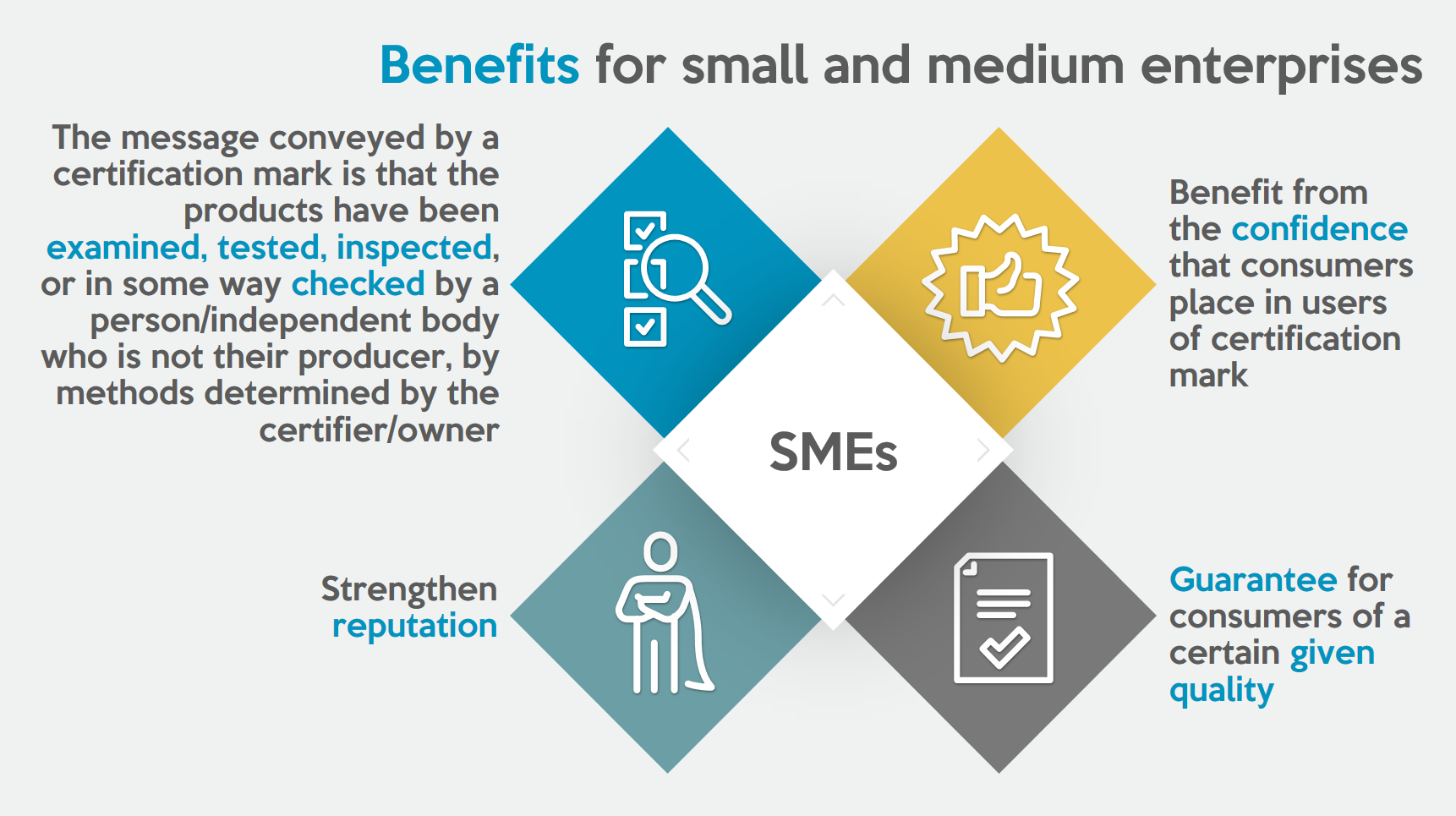Part 5: IP tools - Certification trade marks
Certification trade marks are a form of trade mark used to identify goods or services that meet certain standards or specifications which can include quality, place of origin, raw materials, mode of producing the goods, or performance of services and other specified properties. The owner of a certification mark usually is an independent enterprise, institution, governmental entity, or certification body, which is competent to certify compliance with the concerned products.
The owners of the certification mark will elaborate specific standards associated with a product or service and they exercise control over the use of the mark and ensure that those using the certification mark are compliant with the standards associated with the mark. In this regard, others may use the certification trade mark but not by the owner of the mark. Unlike the case of collective marks, there is no compulsory membership.

To be effective, the certification mark must have elaborated regulations of use detailing with the characteristics of the product, the conditions of use, the controls mechanisms associated with use and proceedings to deal with unauthorised use and non-conformity. Users of the certification mark can do so under license, payment of a fee and by meeting the standards associated with the mark.
The use of certification marks by producers in their OLP business strategy will depend on the IP legal framework of the jurisdiction they are operating within. Some countries may not have any legal provision for certification marks (e.g. Japan and Cambodia) while others may include certification marks, under the umbrella of collective trade marks.
Unlike with collective marks and individual trade marks, the certification mark must have some standard or product specifications associated with it.
There are many benefits small producers and SMEs can derive from using certification marks as part of the business strategy to brand and promote their OLP.
Examples of Certification Marks
- Handloom Mark: This represents a certification mark used for genuine handwoven fabric products originating from India.
- A certification mark used for batik in Indonesia which is a specific fabric in Indonesia.
Both certification marks provide some guarantees on the product and production process such as the product is handmade; certain ecological and social requirements have been considered in production practices, and that children have not been employed in production or processing of the fabric. The certification mark, in this case, also provides some information on the origin of the geographical area of the production and that the products are handmade of 100% recyclable materials.
Learning exercise
Question 1: Should the conditions of use for collective or certification trade marks be defined during the application process?
The answer is yes. Both collective or certification trade marks require the definition of rule of use and/or product specifications to be defined.
Question 2: Shall collective or certification trade marks users be members of the trade mark’s owner association?
Yes for collective trade marks. No for certification trade marks.
